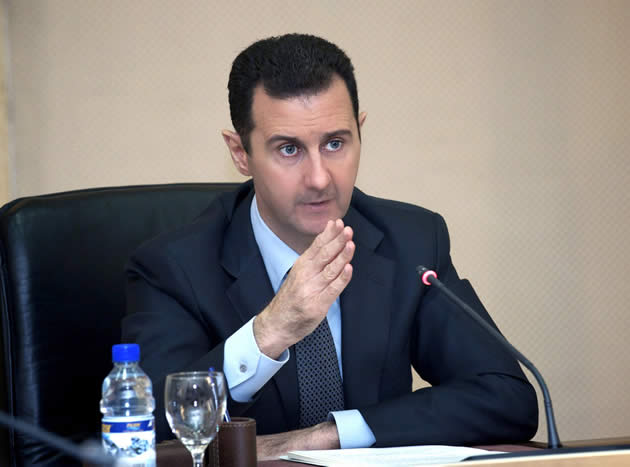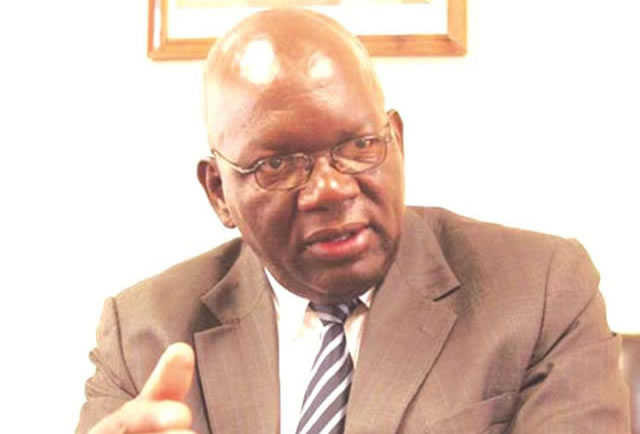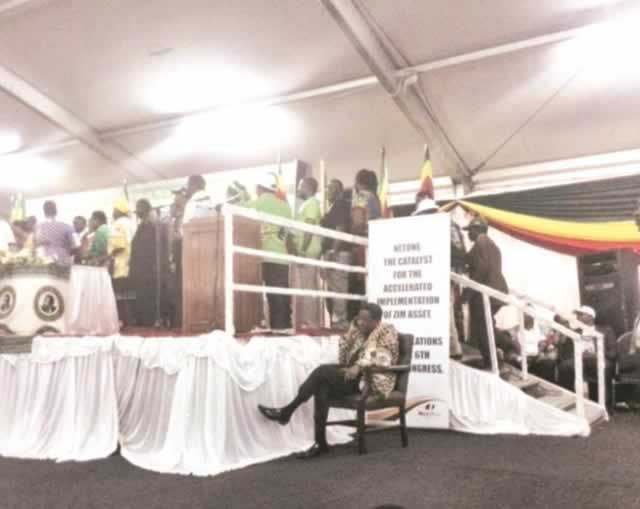Why Bashar al-Assad refuses to step down in Syria

Stephen Gowans Correspondent
Syrian president Bashar al-Assad has told an interviewer from the French magazine Paris Match that he won’t step down. And not because he wants to remain president, but because he “will never accept that Syria become a western puppet state.”
The view that Syria is under attack because it isn’t a western puppet state, and that Washington wants Assad to step down to make it one, cannot be so easily dismissed. There’s plenty of evidence that states that seek to remain independent of US prescriptions on how they ought to organise their economies and foreign policies are uniquely targeted for sub-critical warfare (sanctions, sabotage, demonization, diplomatic isolation), or — where a military victory can be secured with impunity for the aggressor — by outright military intervention.
The Yugoslav leader Slobodan Milosevic, who NATO forces worked tirelessly to depose, told Canadian lawyer Christopher Black that Washington sought his ouster for two reasons: Because he was a communist. And because he told the Americans to go fuck themselves. Which is to say, Milosevic refused to turn Yugoslavia into a western puppet state.
Libyan leader Muamar Gaddafi was overthrown because he insisted that foreign investment in Libya work to the benefit of Libyans, an attitude that threatened to cut into the profit margins of Western investors. The US State Department complained that Gaddafi was practicing “resource nationalism,” while oil companies reacted bitterly to the tough bargains he was driving. This was hardly behaviour befitting a western puppet state (which Libya wasn’t.) For telling Western oil companies that they could go fuck themselves if they thought they were going to get rich on Libyan oil while leaving Libya with nothing, Gaddafi, in the view of the Western foreign policy elite, had to go.
Assad is cut from the same cloth. He leads a state that was founded on anti-colonialism, anti-imperialism, Arab nationalism, and non-Marxist socialism, not subservience to an imperial master, and not setting the profit-making interests of foreign investors ahead of Syria’s economic development. The US State Department complains that “ideological reasons” prevent Assad from “liberalising” the economy (that is, making it profitable for foreign investors), while the US Library of Congress Country Study of Syria refers disapprovingly to “the socialist structure” of the Syrian government and economy.
Meanwhile, the US regional ally Egypt is crushing the Muslim Brotherhood, jailing thousands of moderate Islamists, meting out mass death sentences to supporters of the legitimately elected former president, (who the current president deposed in a military coup), and reversing whatever modest gains the Arab Spring brought to the country. Egypt’s president isn’t asked to step down. On the contrary, he’s showered with US military aid, subsidized with Saudi oil money, and praised by Western politicians. The rulers of the Gulf kingdoms, the last theocratic absolutist redoubts on the planet, continue to thrive under US tutelage. Saudi Arabia, a particularly vile state, stands out in its abhorrence of basic human rights (like allowing women to drive automobiles), penchant for beheading criminals, and zeal in spreading the harsh 18th century version of Islam from which ISIS’s ideology springs.
As for Turkey, it continues to back ISIS, while remaining an important ally of the United States. The lesson is plain: Create a good foreign investment climate, become a market for the US arms industry, turn over your resources to the West, cooperate with the US military, and you can kill as many of your own people as you like, resist democracy as long as you want, and merrily trample on human rights. Just don’t insist that your economy work to the benefit of your own people.
States that insist on screening and managing foreign investment become the subject of a propaganda assault, carried out ardently by Western state officials and their echo chambers, the Western mass media, which are, after all, large businesses, with a pro-business orientation, that quite naturally favour states that favour them and their class cohorts.
Under this propaganda system, the offending states become “regimes,” which have “secret police” (versus the West’s “security agencies”.) Members of the state become “regime personnel” or the leader’s “cronies,” rather than government members or ministers. If the state is large enough, it has “satellites,” versus the United States’ “strategic interests” and “allies.” Assad brooked none of this in his interview with Paris Match. When the magazine’s interviewer called the Syrian government a “regime,” Assad retorted, “Let’s agree on terms first. In Syria we have a state, not a regime.”
The Syrian president faced a number of hostile questions, on whether Syria was backing ISIS to weaken the opposition, whether Syria’s army was using chlorine gas against its opponents, and why he denounces the US air-strikes in Syria as illegal when they’re helping Syrian forces (which they’re not, according to Assad)?
Asked how he responds to the allegation that Syria encouraged the rise of Islamic extremists in order to divide the opposition,” Assad replied, “Assuming that what you are saying is true, that we supported ISIS, this means that we have asked this organisation to attack us, attack military airports, kill hundreds of soldiers and occupy cities and villages. Where is the logic in that?”
(The question also overlooks the reality, about which there is no controversy, that funding for Islamic extremism comes from the Gulf states and Turkey, the ideology of ISIS and Jabhat al-Nusra, the principal rebel forces in Syria, originates in Saudi Arabia, and Western powers have used Islamic extremists for decades as allies of convenience to undermine secular nationalist movements and to attack communist, socialist and Arab nationalist states.) The Syrian president told Paris Match that US and allied air-strikes in Syria have done nothing to degrade ISIS in any meaningful way. “We are the ones fighting the battles against ISIS on the ground,” he said, “and we haven’t felt any change.” Accordingly, he views “the alliance’s air-strikes (as) merely cosmetic,” as “tactics without a strategy.”
“You cannot achieve results on the ground,” he said, “without land forces who know the geographical details of the regions and move in tandem with the airstrikes.” Assad called US air-strikes in Syria “an illegal intervention,” explaining that they’re “not authorised by a Security Council resolution” and not authorised by Syria.
The Syrian president ridiculed allegations that Syrian forces have used chlorine gas, pointing out that conventional weapons are capable of killing far more people, and far more readily, and that Syria has conventional weapons, so why use an ineffective weapon when you don’t have to?
While he didn’t raise the point directly, the West’s accusing Syria of using chlorine gas has more to do with its need to demonise a state it’s preying upon, than reality. The popular view of chemical weapons is that they are particularly gruesome and their use inhuman, though it’s unclear how choking to death in a gas attack is any more gruesome than bleeding to death from wounds suffered in a drone strike, or how waging war with chemical weapons is more inhuman than doing the same with cruise missiles and B1 bombers. Gas and biological weapons (as well as battlefield nuclear weapons) have mostly been shunned by militaries, not because their use is considered inhuman, but because they’re messy and may endanger their users and because their effects are greatly dependent on weather conditions. Conventional weapons are simply cleaner and more effective.
Stephen Gowans is a Canadian writer and political activist resident in Ottawa. This articlwe is reproduced from http://gowans.wordpress.com.









Comments